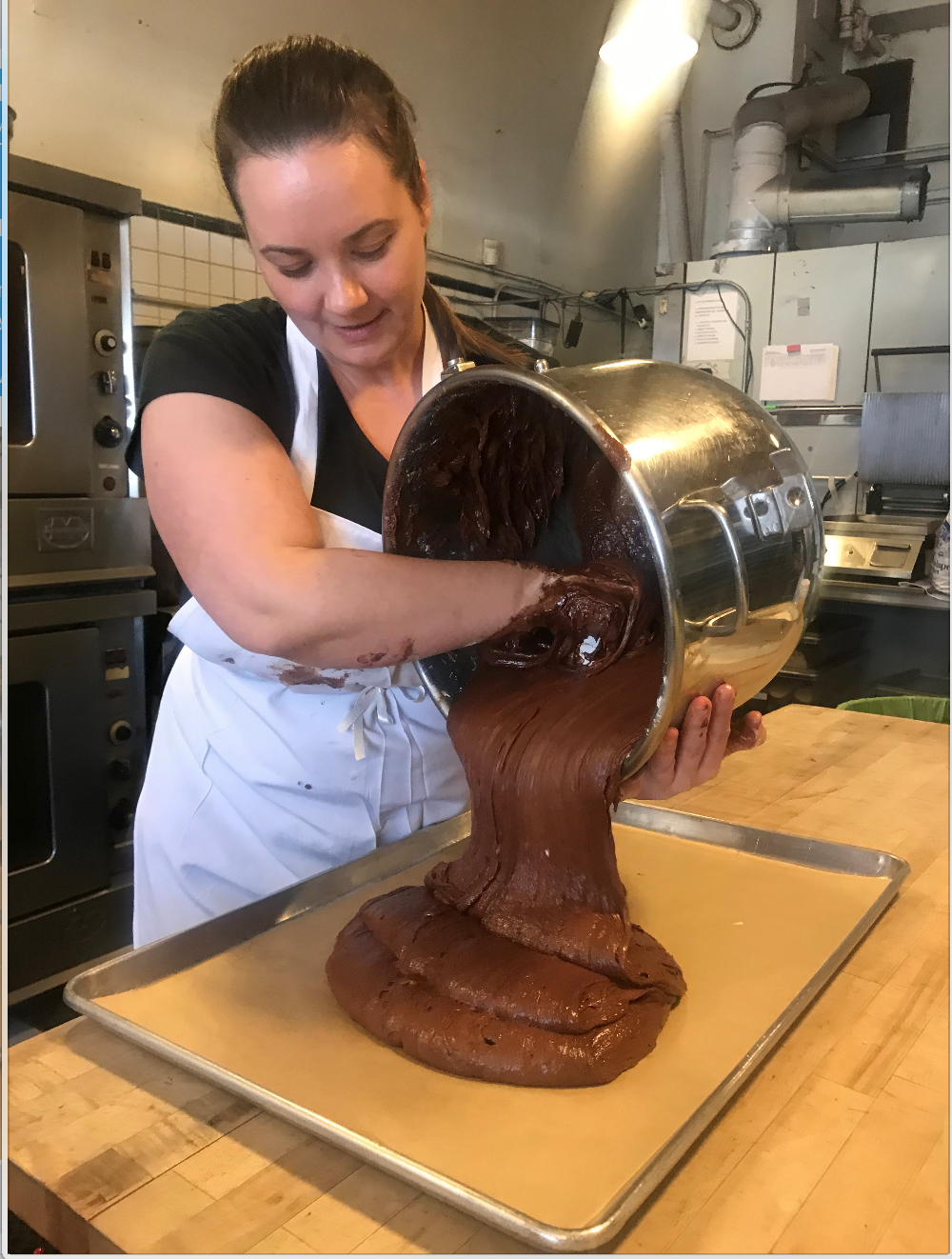
Making sandwiches at Tartine Bakery has been a decent job, says Excelsior resident Sandra Lopez. There’s health insurance, and the working conditions are good. But she’s still barely making ends meet.
“I’m paid $17 an hour,” she says. “One sandwich at Tartine costs $17.”
Lopez would know: she makes more than 50 of them a day, working from 11 a.m. to 8 p.m.
A 44-year-old Honduran immigrant, Lopez is one of the more than 200 Tartine workers who are hoping to organize under the International Longshore and Warehouse Union.
Announced earlier this month, the union drive is supported by more than 70% of the 215 workers at the company’s Bay Area locations, who are hoping to secure better pay, job protections and more consistent scheduling.

Tartine management has declined to recognize the union, arguing in a letter that workers have been subject to "mischaracterizations and falsehoods" about its potential benefits.
In response, union leaders have filed for an official election with the National Labor Relations Board, which is likely to take place next month.
If the workers earn a simple majority of pro-union votes, the union will be enacted, and a bargaining committee of workers will be chosen to negotiate terms with owners Elisabeth Prueitt, Chad Robertson and Chris Bianco.
For Lopez, the vote is critical. After emigrating from Honduras three years ago to escape the violence plaguing the country, she’s supporting her four children, who still live there, from a distance. She got the job at Tartine through her sister, who works in delivery and packaging at the Tartine Manufactory.
Between health insurance, an immigration lawyer for her political asylum case, and the $800 rent she pays for a room in the Excelsior, Lopez is stretched thin. She believes the union is her best hope for increased wages, better health care, and perhaps, one day, being able to take a vacation.
According to Tartine employees, the high-end bakery starts paying most workers around San Francisco’s $15.59-per-hour the minimum wage, give or take a few dollars, depending on experience. That includes the bakers behind Tartine’s famous pastries.
Lopez’s colleague Jamie Fassio, 36, is a longtime home baker who worked in sales, but always longed to be in the kitchen. In 2016, she decided to follow her dreams of becoming a pastry chef, studying full-time at the International Culinary Center before landing a job at Tartine. There, she turns out pie and tart shells, cookies, scones, quiches and soon, cakes.
Being employed by a prestigious bakery has its perks: Fassio has had the opportunity to grow her culinary skills, learn new techniques, and use top-of-the-line ingredients. But her pay — $20 an hour — just doesn’t cut it, especially with a baby on the way.
“Things are super tight right now,” Fassio says. “It would be nice to have some savings.”

Tartine, which first opened at 18th and Guerrero streets in 2002, has rapidly expanded in the past few years. In 2016, it opened its Mission spinoff, Tartine Manufactory, followed by expansions to Seoul, Los Angeles, Berkeley and the Inner Sunset.
Barista John Lapp was one of Tartine Manufactory’s first employees, hired at $15 an hour when it opened in 2016. He says he never received a raise until he asked for one, three years into working at the company. His coworker, an immigrant from Guatemala, was hired four years ago and has never received a raise.
Lapp is only able to afford living in San Francisco because his rent is much lower than market rate; along with four other people, he lives in a tiny Mission District apartment (“essentially a closet”) that’s owned by the San Francisco Community Land Trust. If he wasn’t living there, Lapp says, he’d probably have to work a second job.
“Service workers are the backbone of San Francisco and other cities,” Lapp says. “It’s becoming increasingly impossible for us to live in San Francisco.”
Lapp is currently on medical disability due to a heart infection, but hopes to return to Tartine once he recovers. He’s supporting the union in the hope that it will address inconsistencies in management and a lack of accountability in responding to workers’ grievances, along with improving pay.
“We want Tartine to do well,” Lapp says. "We like our jobs and want to keep them as long as possible. We just want a better workplace for everyone.”

Since Tartine workers announced the union campaign two weeks ago, there's been an outpouring of public support. Residents and store owners have hung Tartine Union posters in their windows, and dozens of patrons have shown up wearing union pins on Tartine Union "support days." Customers have even left notes of encouragement on checks.
The Tartine workers say San Franciscans can support the union by following them on Twitter and Instagram, wearing union pins, and continuing to purchase baked goods, especially on union support days (typically Sundays and Mondays — they’re announced in advance on social media).
“For all of our sakes, I hope we win,” Lapp says. “And I hope we inspire other service workers to try to get organized.”









